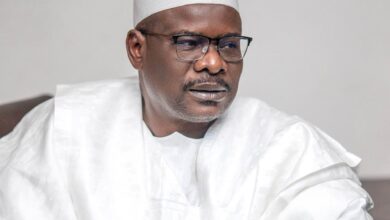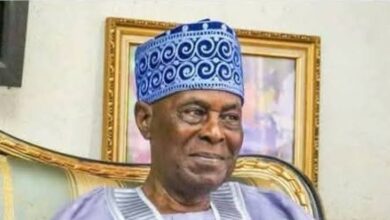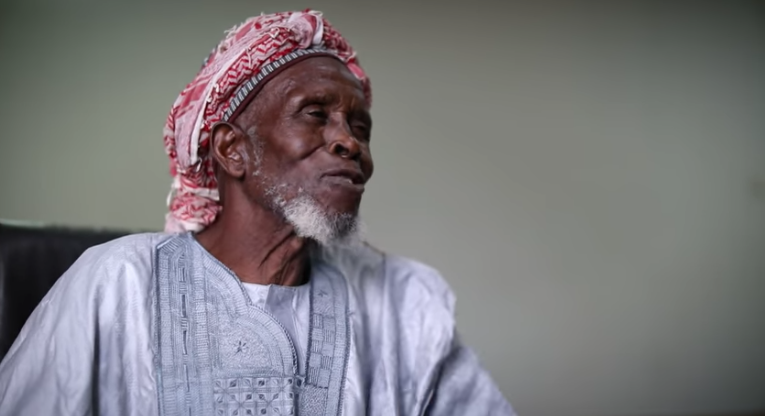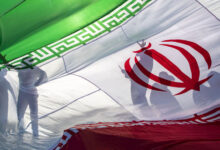AFRICANISM: Gabon withdraws from EU fisheries deal after 18 years

Gabon has officially withdrawn from its long-standing fisheries agreement with the European Union, ending an 18-year partnership that allowed EU fleets, primarily from Spain and France, to access Gabonese waters in exchange for annual payments and technical support.
The decision, announced on June 6, 2025, marks a significant policy shift aimed at reclaiming national control over marine resources and stimulating local economic development.
In a televised address, President Brice Clotaire Oligui Nguema declared the deal no longer aligned with Gabon’s national interests. “For nearly two decades, our waters were harvested by foreign vessels while our local communities saw little return. This ends now,” he stated.
Recall that after deposing civilian Gabonese President Ali Bongo in August 2023, General Brice Clotaire Oligui Nguema was carried through the streets by his triumphant troops, who chanted “Oligui, président! Oligui, président!”.
The Army General certainly appeared to be a man of the people as he was then held aloft by his soldiers, but to many, he was an unexpected leader. He was later handed a seven-year mandate after winning more than 90 percent of the vote in the first post-coup election.
Just five years before that election or the coup he led, he barely existed in Gabon’s public consciousness. He had spent 10 years outside the country after being dismissed from the inner circle of the Bongo family, who until August 2023 had ruled Gabon for almost 56 years.
Citing inequality and overfishing, Gabon takes a stand
Government officials listed several reasons behind the decision:
Unequal economic benefits: The bulk of the profits from the EU-led industrial fishing activities accrued to European companies, with little reinvestment in local fishing communities or infrastructure.
Overexploitation of marine resources: Concerns have grown that foreign trawlers were contributing to the depletion of Gabon’s rich marine biodiversity, particularly tuna and other pelagic species.
Lack of local processing: Most of the catch was exported directly to Europe, bypassing Gabonese ports and depriving the country of opportunities in fish landing, processing, and value addition.
“The agreement enabled others to build an industry using our resources, while our own fishers and processors remained sidelined,” said Fisheries Minister Vivienne Mouketou.
EU responds with diplomacy and openness
The European Union acknowledged Gabon’s sovereign right to exit the Sustainable Fisheries Partnership Agreement (SFPA) and expressed willingness to engage in future dialogue.
“We regret Gabon’s decision but remain open to constructive discussions,” an EU spokesperson said. Under the agreement, the EU contributed approximately €2.6 million annually, with €1 million earmarked for sustainability initiatives and marine research.
Some analysts argue that Gabon’s exit could jeopardize valuable scientific collaborations and funding for fisheries monitoring. Others say it’s a long-overdue step toward true marine independence.
Not alone: A trend among African coastal nations
Gabon is not the first African country to push back against EU fishing deals:
Senegal suspended its fisheries partnership in 2006, only returning to the table in 2014 with new terms emphasizing environmental protections.
Mauritania halted EU access in 2012 over disputes about octopus stocks and compensation, later renegotiating a deal that gave it greater oversight and economic return.
Guinea-Bissau has seen repeated suspensions of its agreement due to governance concerns and limited transparency over how EU funds were used.
These cases reflect a broader trend of African nations reasserting sovereignty over their Exclusive Economic Zones (EEZs), often after years of foreign dominance and perceived underdevelopment of local industries.
What’s next for Gabon? Rebuilding the fisheries sector
Gabon now faces the challenge—and opportunity—of building a self-sustaining, inclusive fisheries economy. Experts and local stakeholders outline several paths forward:
Investing in infrastructure
Develop modern fish landing sites, cold chains, and processing plants in key coastal areas like Port-Gentil and Libreville.
Expand the capacity of domestic fishing fleets with access to credit, training, and technology.
Boosting local capacity
Launch training programs for fishers on sustainable harvesting, processing, and safety standards.
Strengthen marine research institutions to independently monitor fish stocks and ecosystems.
Sustainable management and certification
Adopt international sustainability standards like Marine Stewardship Council (MSC) certification.
Implement advanced Monitoring, Control, and Surveillance (MCS) tools—satellite tracking, port inspections, and drone surveillance—to combat illegal fishing.
Forming South-South alliances and private sector partnerships
Collaborate with experienced African fisheries nations like Namibia or Senegal.
Attract ethical investment in aquaculture and value chain development.
Engage international institutions under the AU Blue Economy framework.
New revenue models
Instead of access fees from foreign fleets, Gabon could explore:
Export taxes on high-value species,
Equity-based partnerships in local processing, Incentives for eco-tourism and sport fishing sectors.
A ripple that could become a wave
Gabon’s bold exit from the EU agreement represents more than a bilateral trade issue—it signals a recalibration of African ocean politics. As climate change and global fishery demand intensify, countries are waking up to the value of their marine wealth and demanding fairer terms.
While short-term challenges remain—particularly replacing EU funding and scientific inputs—Gabon has taken the first step toward a more equitable and sovereign fisheries future.
As President Nguema summed up:
“We are not closing the door to cooperation. We are opening a new one—to fairness, sustainability, and national dignity.”








